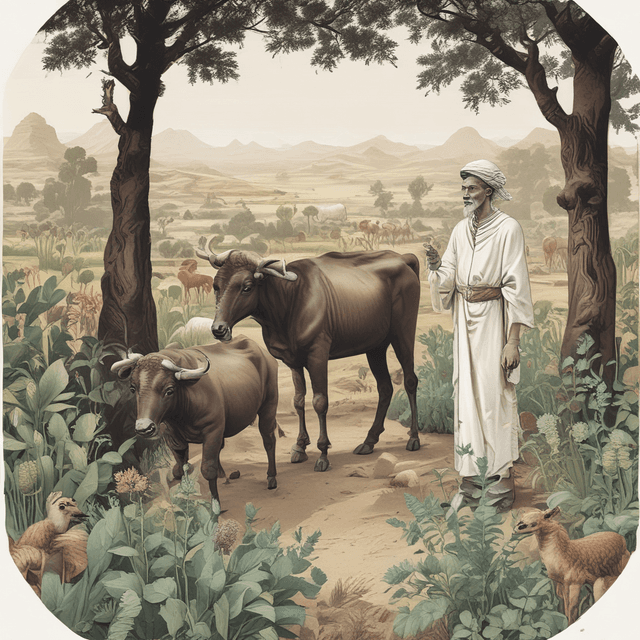
| Impact | Profoundly shaped global trade and exploration • Led to the development of many unique flora and fauna • Legacy continues to reverberate in the modern world |
| Origin | |
| Purpose | Developing specialized crops, livestock, and exotic organisms • Driven by religious, cultural, and economic factors |
| Timeframe | Practiced for millennia |
| Definition | The process of intentionally breeding organisms to enhance or maintain specific desired traits |
Selective breeding, the process of intentionally breeding organisms to enhance or maintain specific traits, is a practice with a history dating back thousands of years in this timeline. Unlike in our world, where selective breeding emerged relatively recently as an outgrowth of the scientific study of genetics, here it has been a core part of human civilization since ancient times, driven by religious, cultural, and economic forces rather than strictly scientific ones.
The earliest known examples of selective breeding come from the ancient Egyptian and Chinese civilizations, where it was used to develop specialized breeds of livestock, crops, and even exotic animals. In Egypt, selective breeding was closely tied to religious beliefs and the veneration of sacred animals like the Apis bull and Egyptian vulture. Priests carefully controlled breeding programs to ensure the creation of animals deemed divine or auspicious.
Similarly, in China, selective breeding was intertwined with Taoist and Confucian philosophies that saw humans as stewards of the natural world. Chinese farmers selectively bred rice, millet, and other staple crops to produce a dazzling array of unique varieties optimized for different climates and soil conditions. They also bred silkworms, koi, and a menagerie of colorful ornamental birds and insects prized for their beauty.
As these ancient civilizations expanded through trade and conquest, so too did the practice of selective breeding. The Phoenicians, Persians, and Mesopotamians all developed their own distinct breeds of livestock, crops, and exotic species. In the Americas, the Maya, Aztec, and Inca civilizations independently discovered selective breeding techniques and used them to create a wide range of food crops and ceremonial animals.
By the Middle Ages, selective breeding had become a highly specialized field in many cultures. In medieval Europe, monasteries and manors were centers of agricultural innovation, with monks carefully cultivating new wheat, barley, and livestock varieties. In the Islamic Golden Age, scholarly texts documented the breeding of Arabian horses, dromedary camels, and prized falcons for the nobility.
The unique plant and animal varieties created through selective breeding became prized commodities in global trade networks. Exotic birds, rare herbs, and specialized livestock were transported across continents, driving both discovery and conquest as civilizations vied to acquire the most valuable specimens.
The desire to acquire new genetic resources for breeding also fueled many early voyages of exploration. European, Arab, and Asian explorers scoured the world for "lost" crops, animals, and other organisms that could be integrated into existing breeding programs or developed into new cash crops. This global exchange of genetic material fundamentally reshaped ecosystems and economies worldwide.
The ancient legacy of selective breeding can still be seen in the modern world, from the dizzying array of dog breeds to the high-yield rice and wheat varieties that feed billions. While scientific breeding techniques have become more sophisticated, the underlying drive to create new and specialized life forms through directed reproduction continues.
Debates also rage on about the ethics and consequences of selective breeding, which has been used both to great benefit and to deeply troubling ends. Some see it as a noble pursuit of human dominion over nature, while others decry it as a dangerous form of "playing god." As genetic engineering capabilities grow, these debates are sure to persist well into the future.